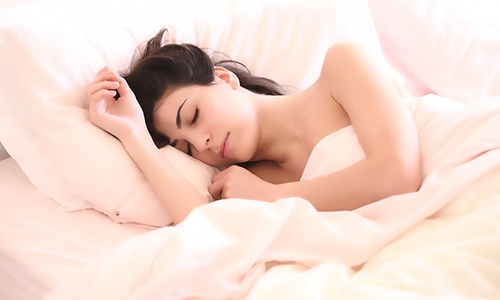7 Tips to Cure Sleep Deprivation
Author

A keen runner, skier and nuts about cycling. Karl lives in Cumbria, where he loves encouraging his two children to follow in his outdoor lifestyle. Whilst out and about keeping active, Karl keeps a diary and shares it with Outdoor Look.
 Sleep is an essential component of life just like food. It benefits mental and emotional health. Health experts suggest that an ideal sleep lasts for 7 to 8 hours. However, many adults these days face the problem of sleep deprivation. Many of us lose sleep quickly and don’t come anywhere near to 7 hours.
Sleep is an essential component of life just like food. It benefits mental and emotional health. Health experts suggest that an ideal sleep lasts for 7 to 8 hours. However, many adults these days face the problem of sleep deprivation. Many of us lose sleep quickly and don’t come anywhere near to 7 hours.
Sleep deprivation can be caused by multiple reasons ranging from stress to a snoring partner. You might have a troubling bladder that wakes you up often throughout the night. There are other severe causes of sleep deprivation like narcolepsy and obstructive sleep. These causes can disrupt your sleeping patterns causing irritation and even depression. There are several medications such Waklert that can help you fall asleep. But, these medications don’t cure sleeping deprivation and its causes. They only help as long as you continue to take them.
Here are some highly effective tips that can bring the sleep fairy back to your bedroom, naturally.
- Active Routine
The easiest way of falling asleep is after you get tired. You can tire yourself with exercise. Go cycling or hit the gym for at least an hour each day. This will promote better and natural sleep.
- Set a Routine
For people who work in flexible shifts, they can set alarm to go to bed at least 9 hours before they need to wake up. This way the mind will adjust to flexible sleep patterns to give you healthy and sound sleep.
- Do Not Give in to Afternoon Sleep
However tempting, refrain from sleeping in the afternoon. This will only mess with your nightly sleep. Avoid power naps as well. According to National Sleep Foundation, while these naps can help you get through the day, cutting them can help you fall asleep at night.
- Relax Before Bedtime
It is easy to get into habits of scrolling through Facebook feed, watch NEWS, cigarettes, or enjoy a few drinks before you go to bed. These activities are unhealthy if you are aiming for peaceful sleep, since they do not have restful effects on body and mind. You can try 7 minutes of guided meditation or listen to gentle white noises. Relaxation naturally enhances sleep.
- Essential Oils
Essential oils like thyme, lavender, and lemon are recommended for those suffering with sleep apnea. Patients can massage a few drops of these oils on their neck, feet, and chest before going to bed. They are relaxants that ease disruptions caused by sleep apnea and snoring. Massaging a drop of peppermint essential oil under your nostril can relieve inflammation and irritation in the lining of your nasal passage.
Lavender essential oil is the most studies oil in research trials and is known to promote deep sleep. Diffuse 5-6 drops on your bedside or massage a 2% solution on your neck and chest before sleeping.
- Make Your Bedroom a Comfortable Place to Sleep
Make sure that your bedroom and well-organized and there is soft lighting for soothing effect. You can replace your mattresses and pillows with more comfortable ones if needs be. A softer, cosier blanket can be attractive and inviting for sleep.
- Find a Sleep Professional
In case you still find yourself awake at night, do not hesitate before seeing a sleep professional.
Author

A keen runner, skier and nuts about cycling. Karl lives in Cumbria, where he loves encouraging his two children to follow in his outdoor lifestyle. Whilst out and about keeping active, Karl keeps a diary and shares it with Outdoor Look.
Categories
- Sport (28)
- Product Reviews (3)
- Team Outdoor Look (7)
- Mike Wild (2)
- Mike Payton (2)
- Suse Hammond-Pears (3)
- Snowboarding (12)
- Latest Offers (105)
- Shop Talk (1)
- Competitions (7)
- Walking (413)
- Lifestyle Fashion (8)
- Travel (86)
- Kit Guides (176)
- Workwear Clothing (6)
- Safety Workwear (4)
- Health/Fitness (289)
- Skiing (91)
- Great Outdoors (1316)
- Cycling (92)
- January 2025
- December 2024
- November 2024
- October 2024
- September 2024
- August 2024
- July 2024
- June 2024
- May 2024
- April 2024
- March 2024
- February 2024
- January 2024
- December 2023
- November 2023
- October 2023
- September 2023
- August 2023
- July 2023
- June 2023
- May 2023
- April 2023
- March 2023
- February 2023
- January 2023
- December 2022
- November 2022
- October 2022
- September 2022
- August 2022
- July 2022
- June 2022
- May 2022
- April 2022
- March 2022
- February 2022
- January 2022
- December 2021
- November 2021
- October 2021
- September 2021
- August 2021
- July 2021
- June 2021
- May 2021
- April 2021
- March 2021
- February 2021
- January 2021
- December 2020
- November 2020
- October 2020
- September 2020
- August 2020
- July 2020
- June 2020
- May 2020
- April 2020
- March 2020
- February 2020
- January 2020
- December 2019
- November 2019
- October 2019
- September 2019
- August 2019
- July 2019
- June 2019
- May 2019
- April 2019
- March 2019
- February 2019
- January 2019
- December 2018
- November 2018
- October 2018
- September 2018
- August 2018
- July 2018
- June 2018
- May 2018
- April 2018
- March 2018
- February 2018
- January 2018
- December 2017
- November 2017
- October 2017
- September 2017
- August 2017
- July 2017
- June 2017
- May 2017
- April 2017
- March 2017
- February 2017
- January 2017
- December 2016
- November 2016
- October 2016
- September 2016
- August 2016
- July 2016
- June 2016
- May 2016
- April 2016
- March 2016
- February 2016
- January 2016
- December 2015
- November 2015
- October 2015
- September 2015
- August 2015
- July 2015
- June 2015
- May 2015
- April 2015
- March 2015
- February 2015
- January 2015
- December 2014
- November 2014
- October 2014
- September 2014
- August 2014
- July 2014
- June 2014
- May 2014
- April 2014
- March 2014
- February 2014
- January 2014
- December 2013
- November 2013
- October 2013
- September 2013
- August 2013
- July 2013
- June 2013
- May 2013
- April 2013
- March 2013
- February 2013
- January 2013
- December 2012
- November 2012
- October 2012
- September 2012
- August 2012
- July 2012
- June 2012
- May 2012
- April 2012
- March 2012
- February 2012
- January 2012
- December 2011
- November 2011
- October 2011
- September 2011
- August 2011
- May 2010
- April 2010
- March 2010
- February 2010
- January 2010
- November 2009
- October 2009
- September 2009
Submit a Comment